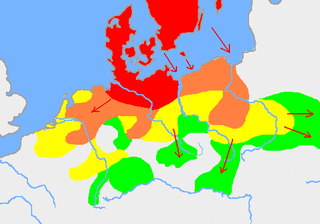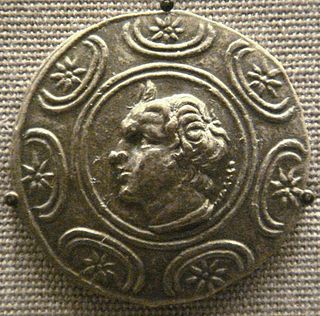Related Research Articles

The 3rd century BC started the first day of 300 BC and ended the last day of 201 BC. It is considered part of the Classical era, epoch, or historical period.
This article concerns the period 229 BC – 220 BC.
Year 241 BC was a year of the pre-Julian Roman calendar. At the time it was known as the Year of the Consulship of Atticus and Cerco. The denomination 241 BC for this year has been used since the early medieval period, when the Anno Domini calendar era became the prevalent method in Europe for naming years.
This article concerns the 200 BC decade, that lasted from 209 BC to 200 BC'.
During the 290s BC, Hellenistic civilization begins its emergence throughout the successor states of the former Argead Macedonian Empire of Alexander the Great, resulting in the diffusion of Greek culture throughout the Levant and advances in science, mathematics, philosophy, etc. Meanwhile, the Roman Republic is embroiled in war against the Samnites, the Mauryan Empire continues to thrive in Ancient India, and the Kingdom of Qin in Ancient China, the one which in the future will conquer its adversaries and unite China, begins to emerge as a significant power during the Warring States period.

This article concerns the period 289 BC – 280 BC.
This article concerns the period 279 BC – 270 BC.
This article concerns the period 269 BC – 260 BC.
This article concerns the period 259 BC – 250 BC.
This article concerns the period 249 BC – 240 BC.
This article concerns the period 239 BC – 230 BC.

Year 250 BC was a year of the pre-Julian Roman calendar. At the time it was known as the Year of the Consulship of Regulus and Longus. The denomination 250 BC for this year has been used since the early medieval period, when the Anno Domini calendar era became the prevalent method in Europe for naming years.
Year 223 BC was a year of the pre-Julian Roman calendar. At the time it was known as the Year of the Consulship of Flaminus and Philus. The denomination 223 BC for this year has been used since the early medieval period, when the Anno Domini calendar era became the prevalent method in Europe for naming years.
Year 262 BC was a year of the pre-Julian Roman calendar. At the time it was known as the Year of the Consulship of Valerius and Otacilius. The denomination 262 BC for this year has been used since the early medieval period, when the Anno Domini calendar era became the prevalent method in Europe for naming years.
Year 340 BC was a year of the pre-Julian Roman calendar. At the time it was known as the Year of the Consulship of Torquatus and Mus. The denomination 340 BC for this year has been used since the early medieval period, when the Anno Domini calendar era became the prevalent method in Europe for naming years.
Year 275 BC was a year of the pre-Julian Roman calendar. At the time it was known as the Year of the Consulship of Dentatus and Caudinus. The denomination 275 BC for this year has been used since the early medieval period, when the Anno Domini calendar era became the prevalent method in Europe for naming years.

Year 272 BC was a year of the pre-Julian Roman calendar. At the time it was known as the Year of the Consulship of Cursor and Maximus. The denomination 272 BC for this year has been used since the early medieval period, when the Anno Domini calendar era became the prevalent method in Europe for naming years.

Year 279 BC was a year of the pre-Julian Roman calendar. At the time it was known as the Year of the Consulship of Publius Sulpicius Saverrio and Publius Decius Mus. The denomination 279 BC for this year has been used since the early medieval period, when the Anno Domini calendar era became the prevalent method in Europe for many years.

Pyrrhus was a Greek king and statesman of the Hellenistic period. He was king of the Greek tribe of Molossians, of the royal Aeacid house, and later he became king of Epirus. He was one of the strongest opponents of early Rome. Several of his victorious battles caused him unacceptably heavy losses, from which the term Pyrrhic victory was coined.

Antigonus II Gonatas was a Macedonian ruler who solidified the position of the Antigonid dynasty in Macedon after a long period defined by anarchy and chaos and acquired fame for his victory over the Gauls who had invaded the Balkans.